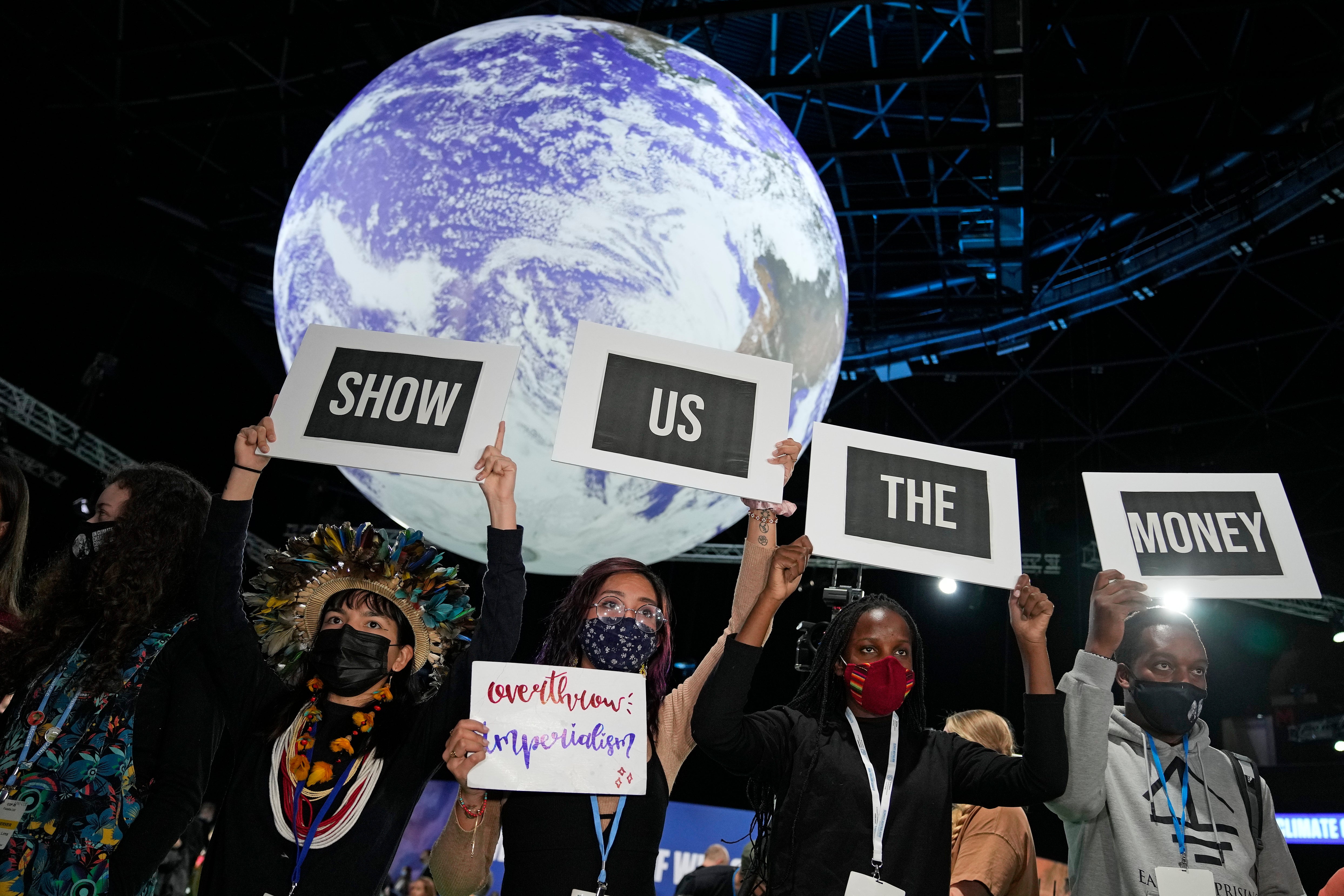Republicans are at war with capitalism because of their stance on climate change
By interfering with free investment in new climate technologies for the sake of their culture war, Republican lawmakers threaten America’s leadership and security. But prioritizing feelings over the facts never works


Your support helps us to tell the story
From reproductive rights to climate change to Big Tech, The Independent is on the ground when the story is developing. Whether it's investigating the financials of Elon Musk's pro-Trump PAC or producing our latest documentary, 'The A Word', which shines a light on the American women fighting for reproductive rights, we know how important it is to parse out the facts from the messaging.
At such a critical moment in US history, we need reporters on the ground. Your donation allows us to keep sending journalists to speak to both sides of the story.
The Independent is trusted by Americans across the entire political spectrum. And unlike many other quality news outlets, we choose not to lock Americans out of our reporting and analysis with paywalls. We believe quality journalism should be available to everyone, paid for by those who can afford it.
Your support makes all the difference.A third of Pakistan is underwater. Europe is in the midst of its worst drought in 500 years. California is facing a record-breaking heatwave. Chinese factories in the Sichuan province have shut down due to a combination of the heatwave and drought. Our climate crisis has started grinding down commercial growth and no one can deny it. And instead of leveraging the capitalist forces of the US economy to address this crisis, Republican lawmakers in Texas, Florida, and West Virginia are forcing their own brand of “political correctness” on the people of their states – denying them the opportunity to both make profitable investments and save the planet.
Ironically, these Republican lawmakers are behaving like anti-competitive anti-capitalists, who have thrown away their textbooks on economics, science, and common sense. These lawmakers are enacting policies that limit their constituents’ chances to benefit from a free market. And for sure, we need the creativity, innovation, and scalability of capitalism to address this crisis. So why should politicians determine what sectors experience economic growth? Isn’t that what the Soviets did? How’d that work out?
Building a world equipped to withstand our changing climate relies upon much more than individual gadgets and widgets. Every company will be a “climate aware” company. In 2021, the global climate tech market size totaled just under $14 billion. By 2032, the market is expected to reach over $145 billion, growing at a compound annual growth rate of 24.2 percent. Climate tech encompasses a wide range of industries, technologies, and sectors and seeps into every segment of the economy. As the crisis intensifies, every business — car companies, clothing manufacturers, farmers, food companies, and more — will have to weigh the relevant climate implications of their supply chains in the normal course of fiduciary responsibility. Fighting the climate crisis has the potential for exceptional, historic returns, as corporate bottom lines drive the demand for climate technologies.
Consumer preferences for sustainable goods and lower solar and wind costs have already supported the early stages of climate tech. With the recent passage of the Inflation Reduction Act, the private sector has a huge incentive to accelerate solutions — and we’re already seeing immense investments. First Solar just announced its plans to invest $1.2 billion into expanding its factory footprint in the US when it had previously planned to do so overseas. And despite overwhelming Republican opposition to the bill, the vast bulk of IRA spending will go to red districts. Right now, the Southeast looks to become the nexus of the electric vehicle transition. Honda and LG Energy Solution recently announced their plans to build a $4.4 billion factory to build batteries; Ford is building EV plants in Tennessee and Kentucky; and Mercedes is on track to manufacture batteries in Alabama.
Industries need to acknowledge the risks they face, including climate-related risks. Identifying and avoiding risk means looking at data that helps the bottom line. The proposed SEC rule regarding climate-related disclosures helps asset managers live up to their fiduciary responsibilities.
Across the globe, other countries have observed the historic opportunity that climate investing offers – and they’re going after it. Last year, Chinese climate funds more than doubled their assets, growing to $47 billion in 2021, while Europe almost doubled to $325 billion. When Republican lawmakers stick their heads in the sand, they place the US at a distinct disadvantage.
Rebuilding the world in a safe way means huge new businesses. These past months, we’ve witnessed what relying on the volatile oil and gas markets feels like. We need energy independence for our ongoing global security and global economic success, and that doesn’t mean more domestic oil and gas. Our prices have risen with the rest of the world. By interfering with free investment in new technologies for the sake of their culture war, Republican lawmakers threaten our leadership in the 21st century.
Moving forward, all of us – business leaders, consumers, lawmakers, and more – need to follow the data and prioritize climate. Missing out on smart investments that lead to a true clean-energy future does a disservice to our shareholders, our communities, and our planet. Prioritizing feelings over the facts never works. And if we want to keep our economic leadership in the world, we must position ourselves to tackle the climate crisis with every tool at our disposal. We don’t have to get into politics — it’s just the smart thing to do.
Tom Steyer is a philanthropist, climate activist and hedge fund manager who stood for the Democratic nomination for the presidency in 2020
Join our commenting forum
Join thought-provoking conversations, follow other Independent readers and see their replies
Comments